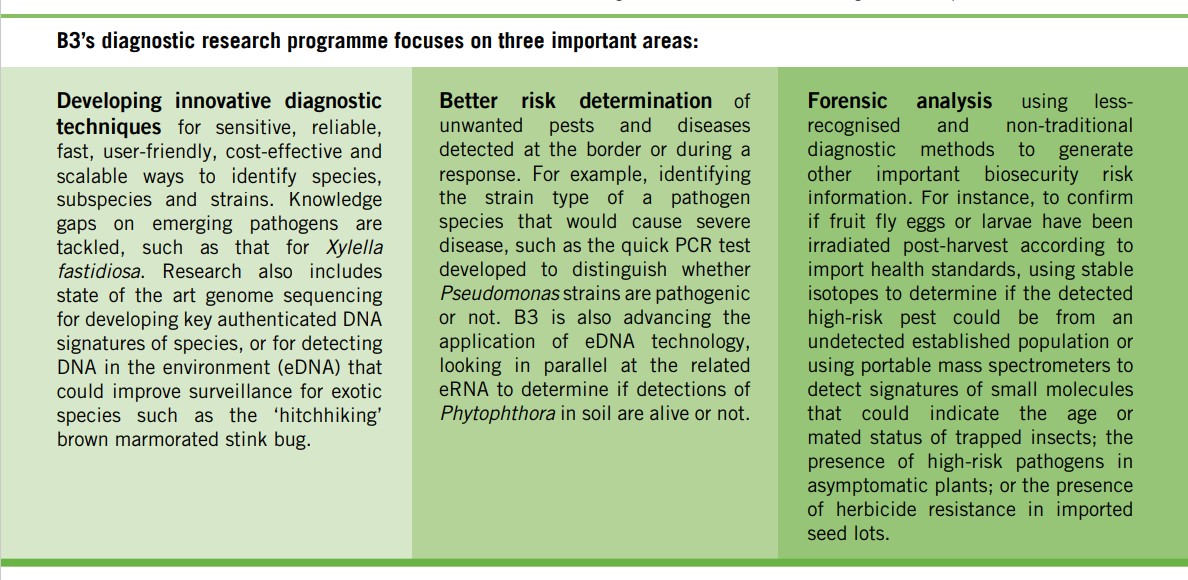This article featured in MPI’s latest PHEL Newsletter
Faster clearance of consignments at the border, keeping up with latest diagnostic technology, and providing faster, more accurate information in an outbreak are just some of the aims of a partnership between PHEL and the Better Border Biosecurity (B3) research collaboration.
B3 is a collaboration between New Zealand’s major plant health research providers and key end-users that include MPI. B3 explores and delivers science solutions to reduce the entry and establishment of exotic plants, pests and pathogens to New Zealand’s productive and natural estate. An important part of this is the innovative tools supporting PHEL’s diagnostic role.
PHEL principal scientist, Rob Taylor, says “Fast, accurate detection and identification of pests and pathogens is fundamental to New Zealand’s biosecurity, protecting our primary industries and environment, and reassuring our trading partners we are free of unwanted pests and diseases. Science-based evidence is crucial.”
PHEL and B3 have collaborated for almost two decades on diagnostic projects. In that time the partnership has resulted in new tools that now form part of PHEL’s routine processes. One example is DNA barcoding to easily identify species of indistinct forms of insects or microorganisms; a bio-chemical test to determine if immobile stages of insects are alive or not; and a quick PCR test to differentiate pathogenic forms of bacteria from non-pathogenic (Pseudomonas species on horticultural crops).
The ongoing partnership with B3 means PHEL can continuously improve its tools for early detection of unwanted organisms and rapidly determine the biosecurity risk – keeping it at the forefront by ensuring our diagnostics are internationally-recognised and meet international standards.

For the full scope of research visit www.B3nz.co.nz
Article by Rob Taylor, Lia Liefting and Prasad Doddala from PHEL, and Karen Armstrong and Kim Thomas from B3.
